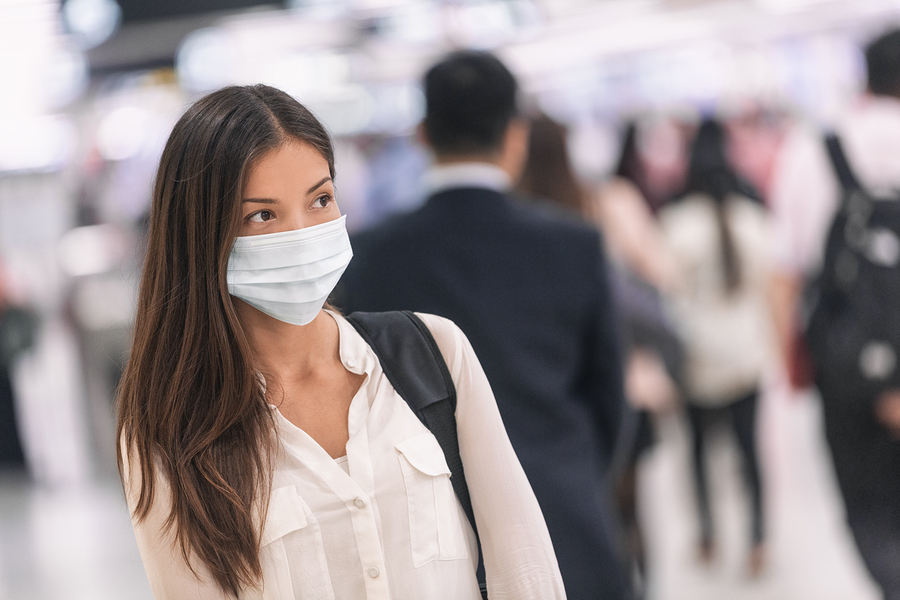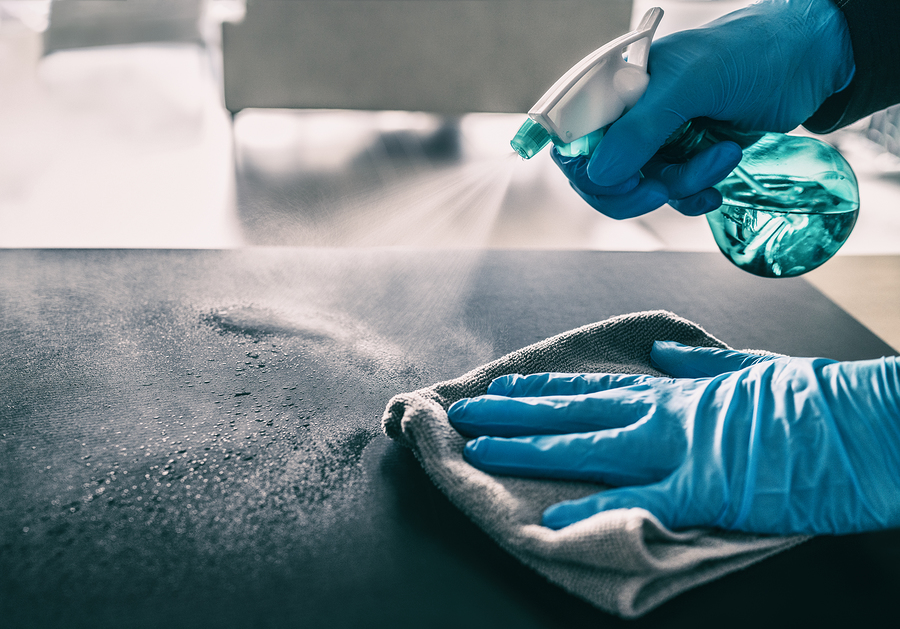When much of the nation shut down in March 2020 to stop the spread of the coronavirus, we all started to learn lessons about one infectious disease that will help keep us safe from many other illnesses long after this pandemic ends.
Viruses and Germs Are Always Potential Threats to Health
The COVID-19 pandemic has focused attention on the need to maintain and preserve health across the country. In fact, the disease provides a timely reminder that colds and germs are always a threat to our health and that many conditions other than COVID-19 can affect our health.
Coronaviruses are nothing new. Several types exist, and they generally cause mild to moderate respiratory systems, such as a cough and a running nose. In fact, two new respiratory diseases, Middle East Respiratory Syndrome (MERS) and Severe Acute Respiratory Syndrome (SARS), are caused by coronaviruses.
COVID-19 appears to be a more serious illness than some of the others that many coronaviruses cause, but the U.S. Centers for Disease Control and Prevention (CDC) estimates that almost everyone will become infected with some type of coronavirus at some point in their lives. Many people experience mild symptoms, and some are asymptomatic (that is, do not feel or show any symptoms).
The seasonal flu presents a large public health issue every year as well. We do not compare the seasonal flu to COVID-19 to minimize the severity of the latter, but rather to point out the need for vigilance to protect against viruses and germs every year. In the United States, there are between 34,000,000 and 49,000,000 people that develop the flu between October and March. The CDC estimates that between 20,000 to 52,000 of these cases are fatal.
The flu has some of the same symptoms as the common cold, and in fact, it is not always easy to tell the difference. In general, flu symptoms are more serious, such as chills and fever.
The common cold is also caused by viruses, most commonly rhinoviruses. Millions of cases of the common cold occur every year in the United States, according to the CDC. Adults get two to three cases per year, on average, and children may suffer colds even more frequently. The cold is, for example, one of the most common reasons children miss school and adults miss work.
While the common cold is never fatal, it can lead to more serious conditions, such as bronchitis, if not treated properly. It can also exacerbate existing conditions, such as asthma. Finally, some viruses can cause other diseases, such as pneumonia, which is an infection in the lungs.
While health officials advise that most adults receive flu shots as protection against the flu each year and that adults 65 years of age and older receive both a flu shot and a vaccine against pneumococcal disease, there is no cure for a viral disease once an individual has contracted it.
That is one of the reasons why there is currently no treatment for COVID-19, and why the only remedy for the common cold and flu is essentially bed rest and over-the-counter medications focused on making you feel better or suppressing symptoms, but not curing you. Antibiotics, for example, are not effective against viral diseases, which is why doctors will not prescribe antibiotics for such illnesses.
That said, the way you behave in public places and at home can minimize your chances of getting any viral infection, whether coronavirus, flu, or cold, every year. Here’s a review of healthy and preventive practices.
Healthy, Preventative Practices for Public Places (and Home)
Wash Your Hands
Hand-washing frequently is the best defense against contracting coronavirus-related illnesses, the flu, and the cold. Remember, while some of these illnesses are more common in winter months, the same illnesses occur in the summer, too. Always remember to wash your hands frequently when you’re in public places (and at home, too, of course).
Wash them in the right way. Lather your hands with soap and hot water. Wash your hands for 20 seconds, and rinse them thoroughly. Fortunately, you don’t have to carry a stopwatch with you or use your smartphone to calculate 20 seconds. Singing “Happy Birthday to You” twice as you wash will ensure that you hit 20 seconds, as will reciting the alphabet slowly. Wash your hands after you’ve prepared food, touched food, thrown food in the garbage, emptied garbage, been to the restroom, or come into contact with contaminated surfaces, and any other time you feel it necessary.
Many people feel that washing their hands frequently dries out the skin. Frankly, it may, but because prevention against viruses and germs is so important, the best remedy for dry hands is to moisturize them, not to stop washing them. Hand lotion or moisturizer, especially at night, will restore your skin to its normal condition.
Use Hand Sanitizer
Many people may not have the facilities to wash their hands when out in public. If your work involves frequent travel or you can’t find a sink, use alcohol-based hand sanitizer. Bear in mind that hand sanitizer is not better than any other method. Indeed, hand-washing is, hands-down, the best method of removing germs from your hands. Hand sanitizer is an alternative method to be used until you are able to wash your hands with soap and water.
Unfortunately, increased demand for hand sanitizer during the COVID-19 crisis has led to many stores running low. Beware of unscrupulous sellers advertising unsafe products as hand sanitizer. Hand sanitizer must contain a certain percentage of alcohol to work.
Avoid Touching Your Face, Especially Around the Eyes, Mouth, and Nose
One of the best preventive practices is to avoid touching your face, especially around the eyes, nose, and mouth. Why? Because germs are all about us, and they are invisible. You cannot tell whether viruses and germs are on you simply by looking. They also spread via contact with other people and surfaces. Making matters more complicated, surfaces may appear clean but actually be covered in germs.
Most people touch their faces frequently, and unconsciously, so it’s a hard habit to break. However, germs can enter around the body via open access areas around your eyes, nose, and mouth, so work to develop a realization of when you are touching your face, and then don’t do it!
Carry Tissues All the Time
Make it a practice to either keep tissues at your work desk or to carry travel-size tissues with you everywhere you go because coughing or sneezing will spread germs.
If You Sneeze or Cough, Cover Your Mouth and Nose With a Tissue
When you sneeze and/or cough, you should always cover your nose and mouth. Your goal here is to avoid spreading germs and potential viruses to other people, so cover your nose and mouth with a tissue. If you sneeze or cough and don’t have a tissue handy, sneeze into your elbow (the so-called Dracula sneeze) to prevent the spread of germs.
Throw Your Tissues Away
Throw used tissues away immediately. Place in a wastepaper basket or public waste bin.
Clean and Disinfect Frequently Touched Surfaces and Objects
The fact is, hands carry germs, even if they are frequently washed. As a result, you also need to make it a practice to clean and disinfect all surfaces and objects with which you frequently come into contact. Use a commercially prepared disinfectant, a disinfectant solution, or wipes for kitchen, bathroom, and other home surfaces.
Do not use a disinfectant for cleaning computers, smartphones, and other electronic devices, as these can harm the screens. Cleaning these devices with soap and water will disinfect them. Unplug them beforehand, and avoid getting water in the ports. For keyboards, use rubbing alcohol or isopropyl alcohol to clean.
Cleaned and disinfect the following surfaces and objects frequently:
- Kitchen surfaces, including counters, appliance surfaces, and tables
- Bathroom surfaces, including counters and fixtures
- All other home surfaces, such as desks
- Computer screens and keyboards
- Smartphones
- Other device screens and keyboards.
Periodically sanitize and disinfect large cleaning appliances, such as dishwashers and washing machines.
Avoid Sick People
If people in your home or workplace become sick with coronavirus-based illnesses, flu, or cold, avoid those individuals. Follow quarantine-based procedures if the illness is COVID-19, of course, but similar distancing will work the majority of the time for other illnesses. Take reasonable precautions, such as not eating from the same plate as someone who obviously has a cold. Consider not sharing bedding if you share a bedroom. If you are on public transport or in a store and close to someone with an apparent respiratory illness, move away.
What if you want or need social contact with people who are sick? Simple: use technology and social media. You can use video chat like Zoom, social media like Facebook or Instagram, email, and the telephone to stay in touch.
In all these situations, use a simple rule: Minimize contact with anyone who could spread disease-causing germs.
If You Feel Sick, Stay Home
As soon as you begin to feel any symptoms of cold or flu (or COVID-19), you should immediately begin to minimize your interaction with other individuals as much as possible, including staying home from work. If you don’t, you may infect everyone you work with. In addition, getting over a cold or flu requires rest and taking care of yourself. You may prolong your own illness if you go to work before you’ve recovered.
Practice Healthy Habits
Part of preventing respiratory (and other) illnesses is making healthy choices on a regular basis. It’s a fact, people are more likely to catch virally transmitted illnesses, and to suffer more serious symptoms, if they are unhealthy and feeling run down.
As a result, maintain good health habits. Make sure you eat a nutrient-rich diet and get at least four servings of fruit and vegetables daily. Many people believe that Vitamin C helps prevent illnesses; foods like oranges, kiwis, and tomatoes are full of Vitamin C.
It’s also important to get plenty of sleep. Adults need at least seven to eight hours every night. If you have trouble falling asleep, find out why and fix it. Don’t, for example, drink caffeinated beverages, like coffee, close to bedtime. If your bedroom is too bright, invest in a sleep mask. Develop a soothing ritual right before bedtime that will allow you to drop off to sleep easily. Drink plenty of water and other liquids. Additionally, adults should exercise for at least thirty minutes three times per week.
Finally, manage stress. Stress seems to make people more prone to illness. If you are in a stressful situation at work or home, resolve to rectify it. Some people find meditation or listening to calming music or noises (birdsong, waves) very soothing, and it may help to reduce or eliminate stress. Exercise can reduce stress, as well.
Develop an Awareness of Your Risks
Some people fall into the CDC’s definition of high-risk groups. These individuals are at a greater risk of experiencing severe symptoms if they get sick. People over the age of 65, for example, may face serious and potentially fatal complications from pneumonia or bronchitis. Contracting the flu can lead to asthma attacks if patients have asthma, which makes the flu more serious for them, as well.
People in these risk groups should, as a result, take every precaution to avoid contracting respiratory illnesses. If these individuals do contact such an illness, they should contact a physician and follow all recommendations, including plenty of bed rest and liquids.
The following are high-risk groups:
- Children under the age of 2
- Pregnant women (throughout pregnancy and up to two weeks after)
- People older than 65
- Residents of nursing homes and long-term care facilities
- People with asthma
- People with cancer
- People with HIV/AIDS
- People with diabetes
- People with heart disease or who have suffered a stroke
Check with your physician to see if you should receive a flu vaccine shot and pneumococcal shot annually. If you should, you should try and get one before flu season (usually mid-autumn).
If You Get Sick
If you do contract the coronavirus illnesses, the flu, or a cold, treat the symptoms. Rest in bed, drink plenty of fluids, and eat healthy foods. Over-the-counter medications, such as cough medicine and antihistamines, can help treat symptoms, as can hot beverages, like tea. If your symptoms worsen or you suspect that you’ve contracted the flu, contact your physician.







